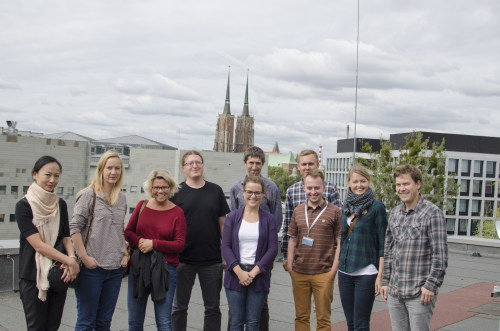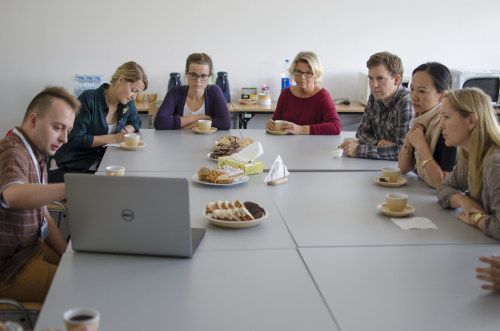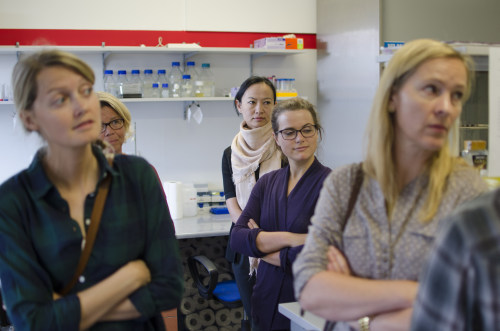



Highly cytotoxic FGF2-conjugates in targeted therapy for FGFR-expressing cancers
Cancer treatment represents a crucial unmet need of current medicine. Particular emphasis is placed on targeted cancer therapies that are based on drugs that block the growth and spread of cancer cells by interfering with specific macromolecules, which are deregulated and play important role in tumor progression.
The main goal of this project is to develop a novel targeted therapy against different types of cancers overexpressing fibroblast growth factor receptors (FGFRs). We propose an unexplored approach based on the FGF2 molecule fused to a highly efficient cytotoxic drug to establish a delivery technique for effective killing of cancer cells. Our strategy is similar to construction of antibody drug conjugates (ADCs), which are showing clinical efficacy in cancer treatment. However, instead of antibodies we will use the engineered growth factor as a delivery molecule specifically directing cytotoxic drug to cancer cell by binding to FGF receptors.
Project presentation (pdf file)
Work Packages
1 Production and biophysical characterization of FGF2 and FGF2-conjugates for targeted therapy of FGFR-related cancers
X 2013 – XII 2015
2 Testing and characterization of FGF2 and FGF2-conjugates suitable for targeted therapy of FGFR-related cancers in cellular model – cell line in vitro study
X 2013 – IX 2016
3 In vivo studies in mouse xenograft models for human cancer and validation of proposed therapy
III 2015 – IX 2016
Research progress
So far, we have constructed, produced, purified and thoroughly characterized FGF2 and its variants specifically designed for chemical conjugation with cytotoxic drug.
We have also successfully conjugated FGF2 using hydrolysable peptide linker, to ensure better pharmacokinetic characteristic of the conjugate.
Biophysical analysis of obtained conjugates allowed us to confirm their native state and suitability for in vitro cellular tests.
As a cellular in vitro testing system three different groups of cell-lines are used: non-cancer cell lines naturally expressing low levels of FGFRs, cells with ectopic overexpression of FGFRs and established cell lines which overexpress FGFRs.
Using various cell lines we have confirmed cytotoxic activity of FGF2 conjugates. Different biological activity was observed depending on tested cell line and number of drug molecules attached to FGF2.
We have prepared FGF2 conjugates suitable for in vivo experiments. Mouse xenograft models for human cancer were established.
Project partners

Antoni Więdłocha Group
Department of Biochemistry
Institute for Cancer Research
The Norwegian Radium Hospital
Oslo University Hospital
Montebello, 0310 Oslo, Norway
Skjalg Bruheim
Department of Tumor Biology
Institute for Cancer Research
The Norwegian Radium Hospital
Oslo University Hospital
Montebello, 0310 Oslo, Norway
Research team
Jacek Otlewski (PhD), Principal Investigator
University of Wroclaw, Faculty of Biotechnology
Antoni Wiedlocha (PhD), project partner
Department of Biochemistry, Institute for Cancer Research, Oslo University Hospital
Skjalg Bruheim (PhD), project partner
Department of Tumor Biology, Institute for Cancer Research, Oslo University Hospital
Malgorzata Zakrzewska (PhD)
Daniel Krowarsch (PhD)
Piotr Jakimowicz (PhD)
Michał Kostaś (PhD)
Ellen Margrethe Haugsten (PhD)
Karolina Świderska (Msc)
Mateusz Krzyścik (Msc)
Justyna Tomala (Msc)
Marta Minkiewicz (Msc)
Katrzyna Czernik (Msc)
Sandra Gruszczyńska (Msc)
Administrative and financial management
Monika Nahorska (PhD), University of Wroclaw, Faculty of Biotechnology
Contact person
Monika Nahorska (PhD)
+48 71 375 26 08
monika@biotech.uni.wroc.pl
Meetings
Kick-Off meeting 21-23.10.2013, Wrocław, Poland
Project progress meeting 31.09-1.10.2014, Wrocław, Poland
Project progress meeting 7.09-8.09.2015, Wrocław, Poland
Project progress meeting 10.08.-11.08.2016, Wrocław, Poland
This project is funded from Norway Grants in the Polish-Norwegian Research Programme operated by the National Centre for Research and Development
Papers
Bober, J., Olsnes, S., Kostas, M., Bogacz, M., Zakrzewska, M. & Otlewski, J. (2016) Identification of New FGF1 Binding Partners – Implications for its Intracellular Function. IUBMB Life. 68, 242-251.
Haugsten, E.M., Sørensen, V, Kunova Bosakova. M., de Souza, G.A., Krejci, P., Wiedlocha, A., Wesche, J. (2016) Proximity Labeling Reveals Molecular Determinants of FGFR4 Endosomal Transport. J Proteome Res. 15, 3841-3855.
Krzyscik, M. A., Zakrzewska, M., Sørensen, V., Sokolowska-Wedzina, A., Lobocki, M., Swiderska, K., Krowarsch, D., Wiedlocha, A. & Otlewski, J. (2017) Cytotoxic Conjugates of Fibroblast Growth Factor 2 with Monomethyl Auristatin E for Effective Killing of Cells Expressing FGF Receptors. ACS Omega 2(7), 3792–3805.
Swiderska, K.W., Szlachicic, A., Czyrek, A., Zakrzewska, M. & Otlewski, J. (2017) Site-specific Conjugation of Fibroblast Growth Factor 2 (FGF2) Based on Incorporation of Alkyne-reactive Unnatural Amino Acid. Bioorg. Med. Chem. 25, 3685-3693.
Patent application
Krzyścik, M., Łobocki, M., Sokołowska-Wędzina, A., Borek, A., Sochaj-Gregorczyk, A., Jakimowicz, P., Zakrzewska, M., Krowarsch, D.& Otlewski, J. (2016) Sposób modyfikacji sekwencji polipeptydów i jej zastosowanie, P.417544
MSc thesis
Gruszczyśnska S. (2016) Optymalizacja nadprodukcji i oczyszczania białka sFGF2 i jego wariantów mutacyjnych z użyciem systemu inteinowego.
Niedzwiedzka, K. (2016) Analiza aktywności biologicznej i odporności proteolitycznej wariantów czynników wzrostu fibroblastów
PhD Thesis
Bober J. (2016) Wewnątrzkomórkowe białka partnerskie czynnika wzrostu fibroblastów 1 (FGF1)
Conferences and seminars
Krowarsch, D. (2013) Highly cytotoxic FGF2-conjugates in targeted therapy for FGFR-expressing cancers, Project kick-off conference, NCBiR, Warsaw, Poland
Wiedlocha, A. (2013) Molecular mechanism of fibroblast growth factors endocytosis. Project progress meeting, Wrocław, Poland
Krowarsch, D. (2014) Stability of FGF2 mutants designed for cytotoxic drug conjugation, Project progress meeting, Wrocław, Poland
Wiedlocha, A. (2014) Biological activity of FGF2 variants designed for cytotoxic drug conjugation, Project progress meeting, Wrocław, Poland
Zakrzewska, M. (2015) Intracellular activity of FGF1 and FGF2 inhibits apoptosis, Project progress meeting, Wrocław, Poland
Swiderska, K.W. Otlewski, J. (2016) Production of Site-Specific Cytotoxic-FGF2 Conjugates. Annual Protein and Antibody Engineering Summit (PEGS), Boston, USA, Poster
Krzyscik, M.A., Otlewski, J. (2016) Highly Cytotoxic FGF2-conjugates, 2nd Congress BIO 2016, Wroclaw, Poland, Poster
Zakrzewska, M., Szlachcic, A., Lobocki, M., Krzyscik, M., Otlewski, J. (2016) Design of Cytotoxic Conjugates of FGF1 and FGF2 for Targeted Cancer Therapy, GRC Fibroblast Growth Factors in Development & Disease, Hong Kong, China, Poster
Krowarsch, D. (2016) Highly cytotoxic FGF2-conjugates, , Together for Innovation in Health, Polish-Norwegian Research Programme, Krakow, Poland
Photos Research team, Department of Protein Engineering, University of Wrocław
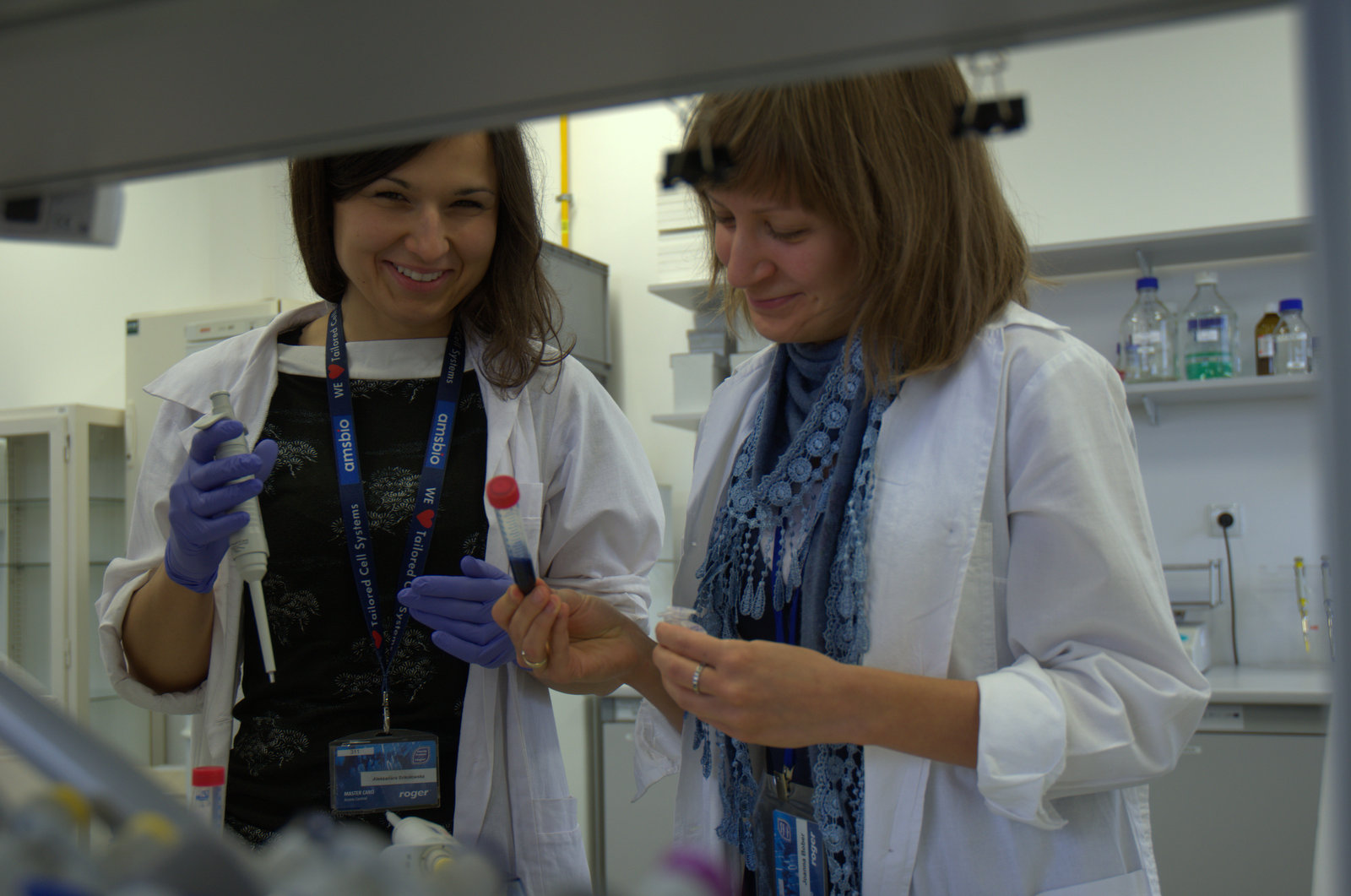
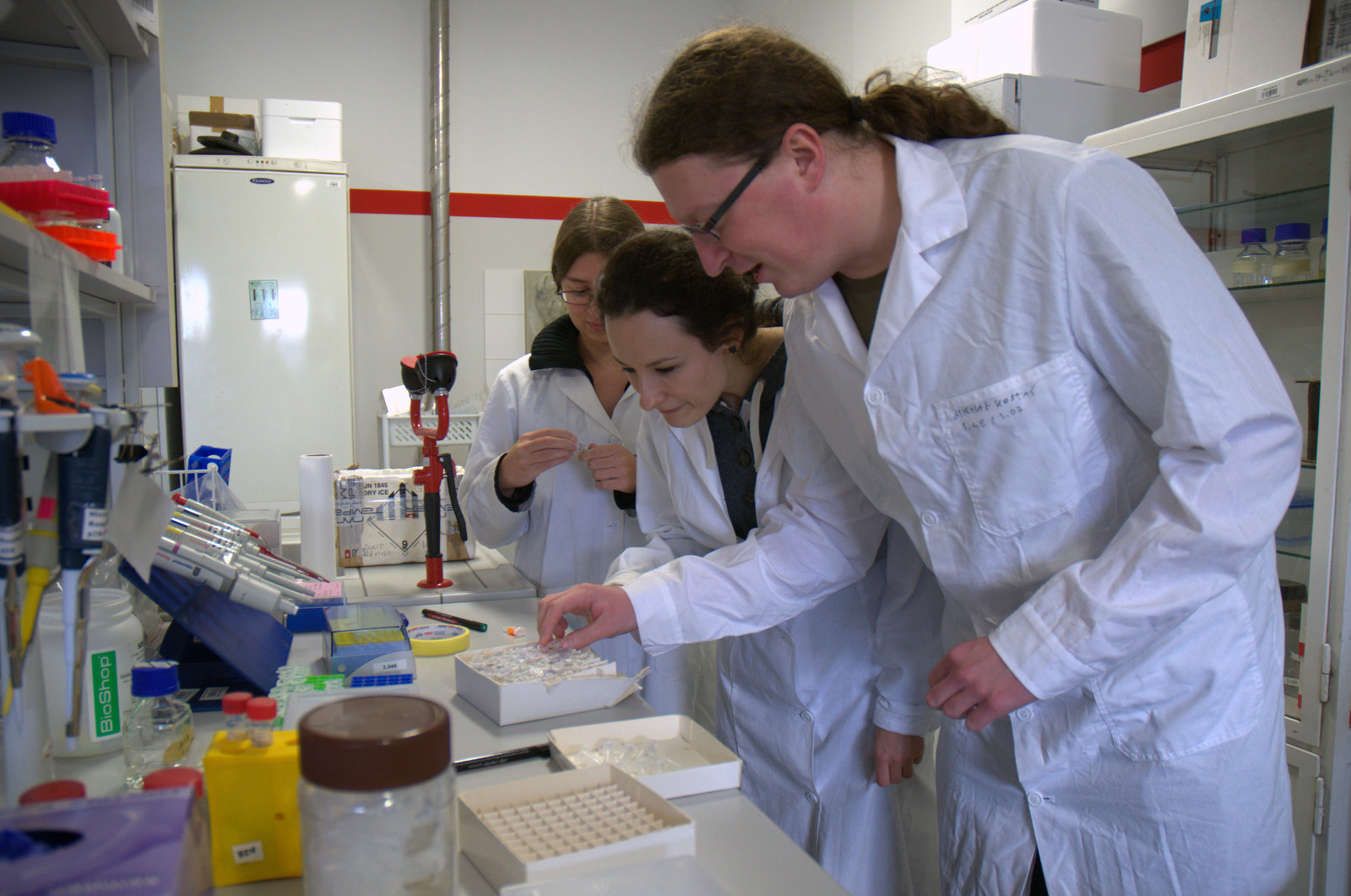
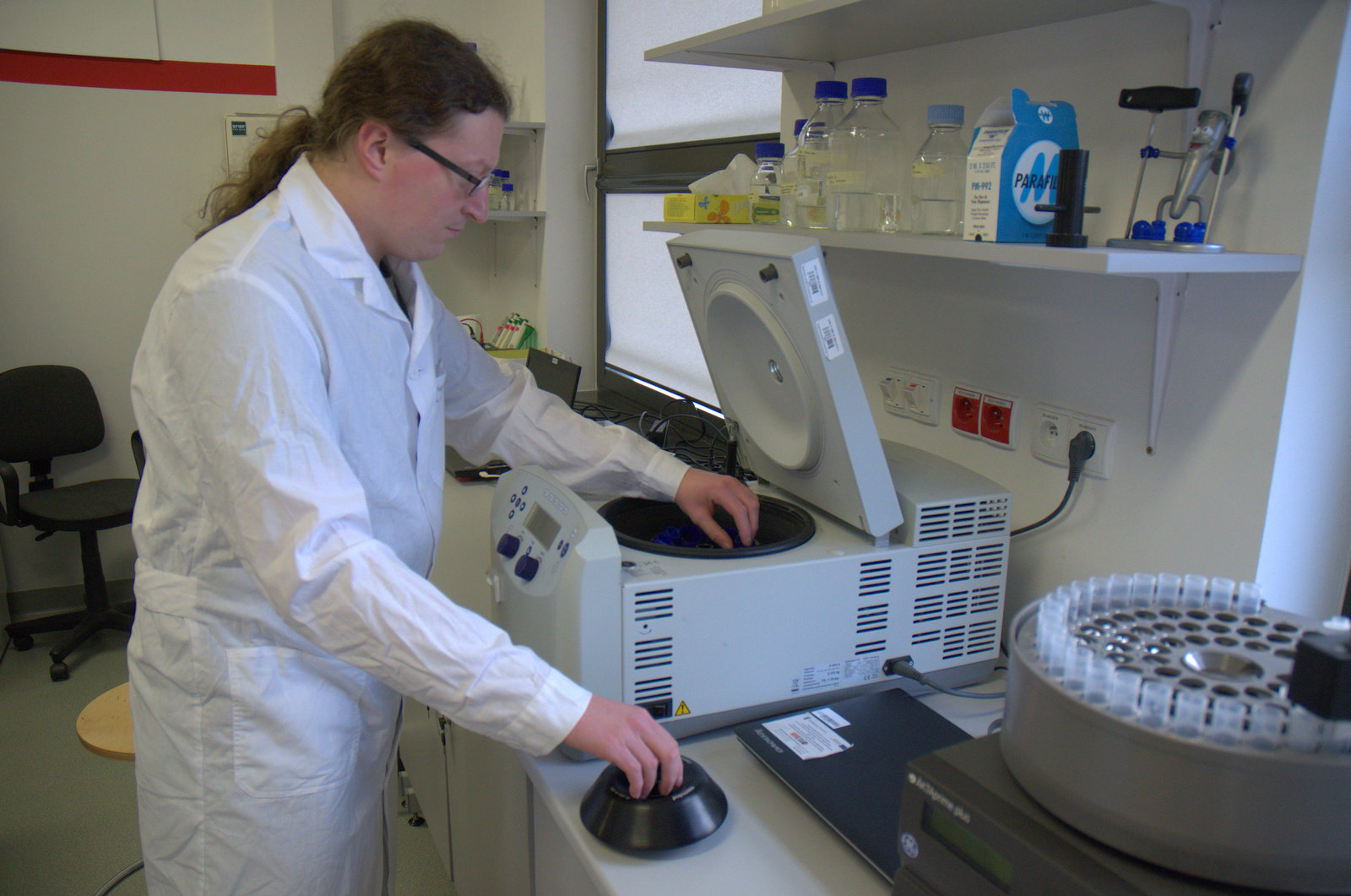
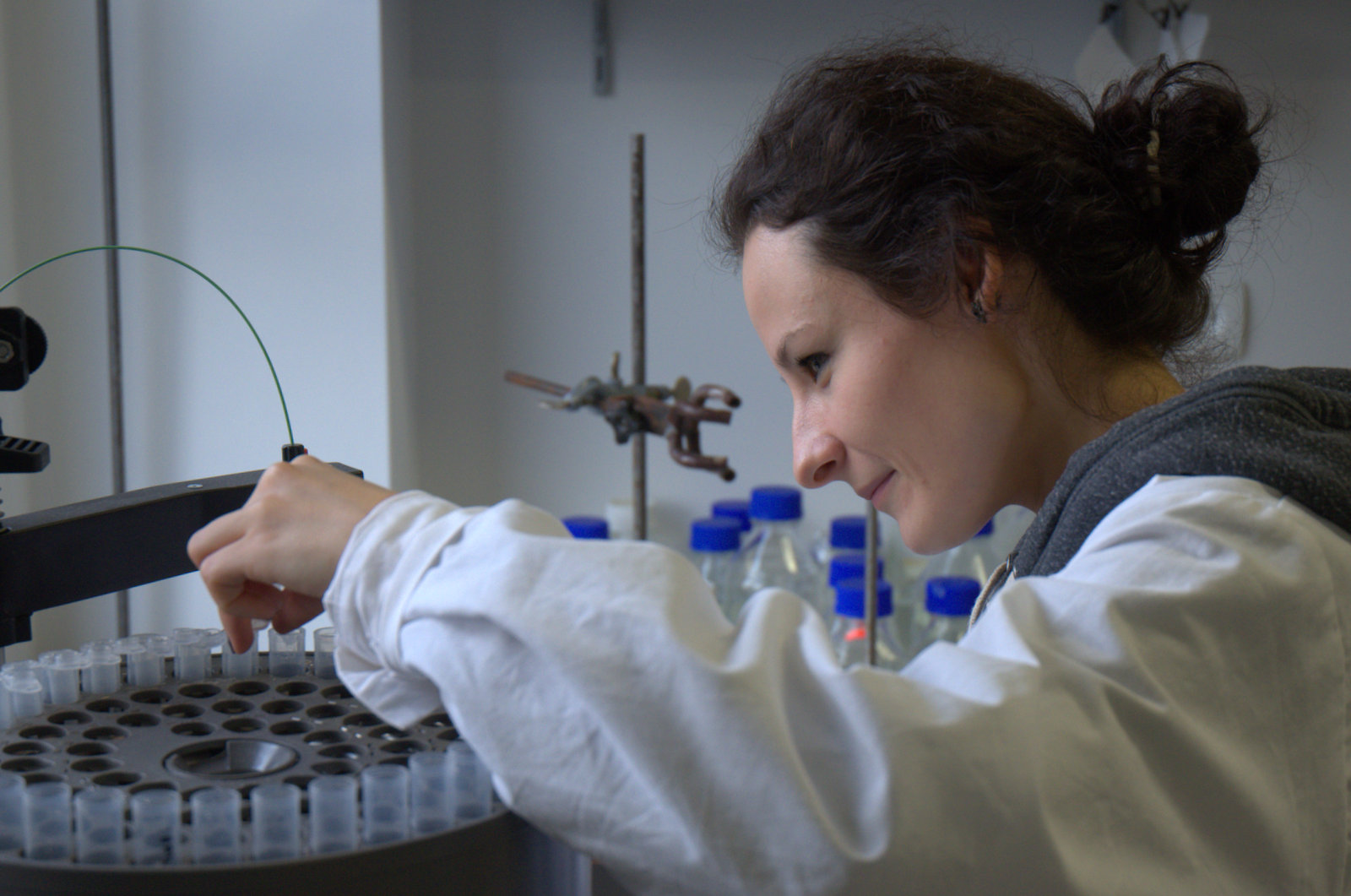
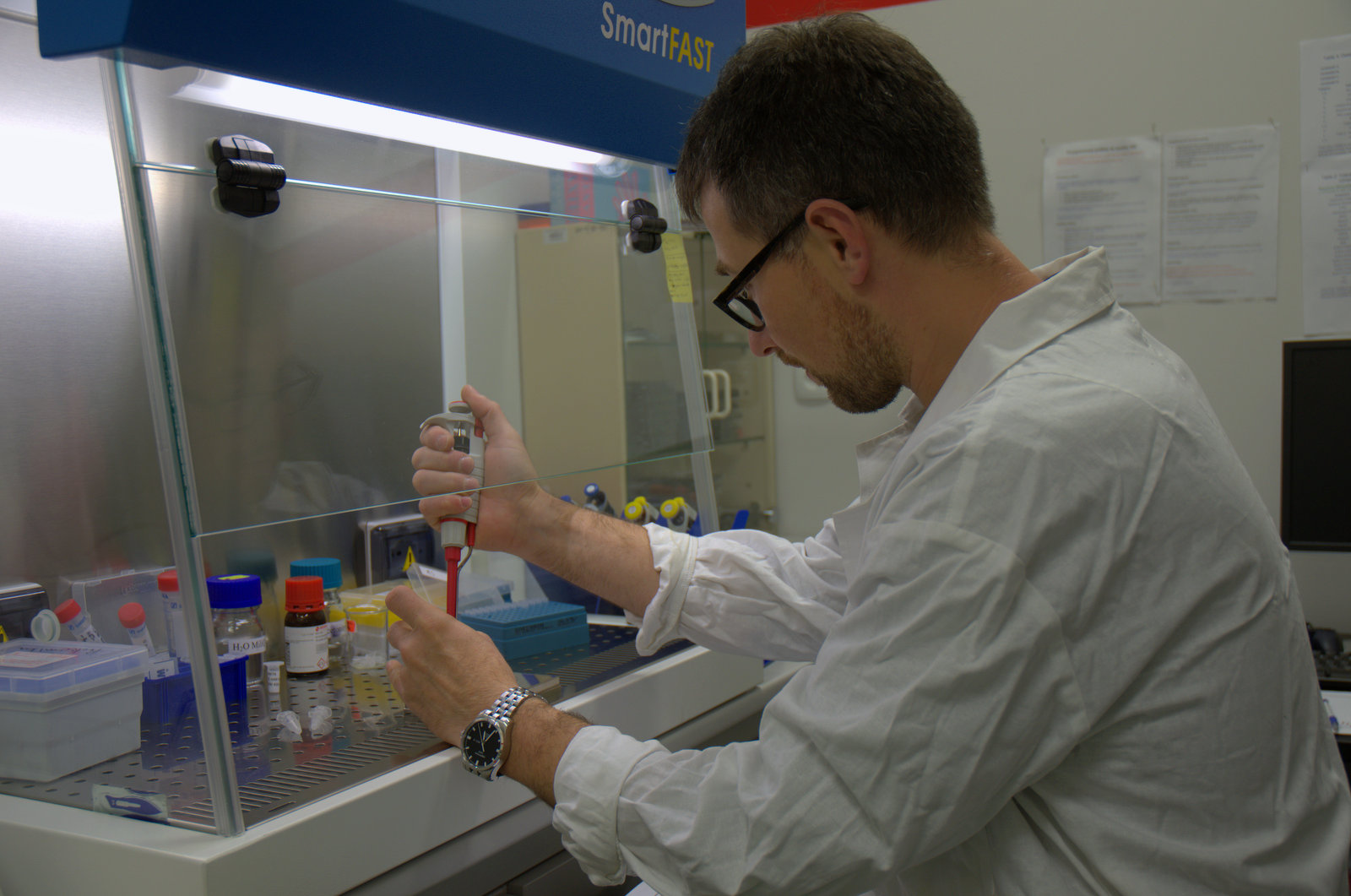
Project progress meeting 7.09-8.09.2015, Wrocław, Poland
